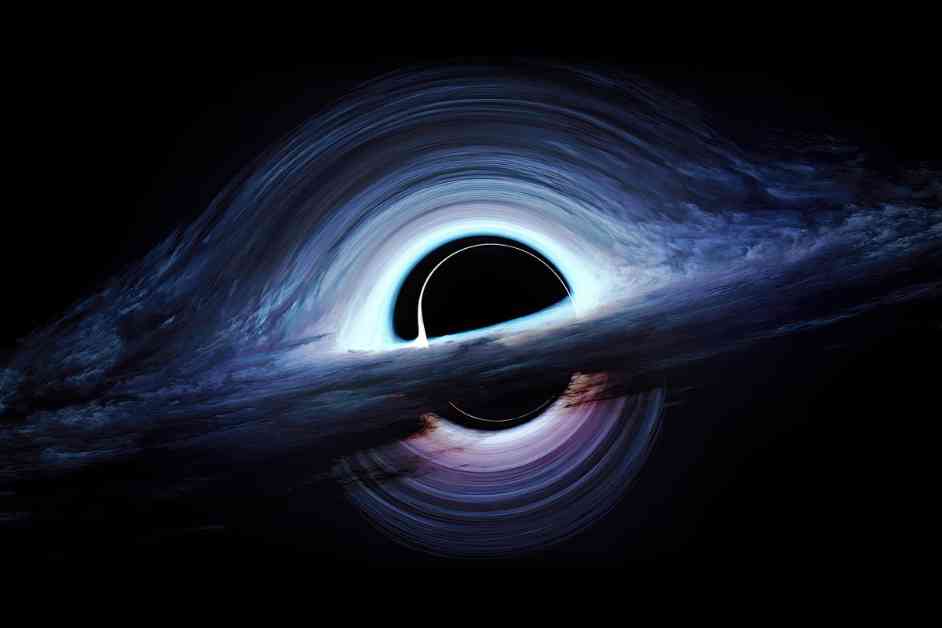Dark matter may not be as mysterious as we once thought. Scientists believe that black holes, as small as an atom but containing the mass of an asteroid, could be passing through our solar system every decade. These primordial black holes, created shortly after the big bang, could potentially explain the missing dark matter that is believed to make up a significant portion of our universe.
Researchers have theorized that during the rapid expansion of space after the big bang, quantum fluctuations in density could have led to the formation of these tiny black holes. If these black holes are indeed the source of dark matter, they would pass through our solar system approximately every 10 years. The gravitational effects of these black holes passing by planets like Earth and Mars could cause noticeable disturbances in their orbits.
One study, conducted by Tung X. Tran from MIT, used a computer model of the solar system to track the potential effects of a black hole flyby. By analyzing the changes in the distance between Earth and nearby objects, researchers were able to determine that Mars would be the most affected by such an event. The precision of tracking the Earth-Mars distance allows scientists to detect even small perturbations caused by the passage of a black hole.
If these disturbances are detected, scientists can track the trajectory of the object to determine whether it is a black hole or a regular asteroid. By observing the pattern of wobbles over time, researchers can gather valuable information about the nature of the passing object. This method could provide insights into the existence of primordial black holes and their potential role in dark matter.
In addition to tracking black holes passing through the solar system, researchers are also exploring other avenues to detect dark matter. Analyzing data from asteroids like Bennu, which has been closely monitored by the OSIRIS-REx mission, could provide valuable insights into the presence of dark matter. By leveraging existing data and technologies, scientists are continuously working towards unraveling the mysteries of the universe.
The search for dark matter has led physicists to consider alternative explanations, such as primordial black holes. While traditional theories like weakly interacting massive particles (WIMPs) have failed to yield results, black holes offer a new perspective on the nature of dark matter. These findings challenge existing paradigms and open up new possibilities for understanding the invisible mass that shapes our universe.
As researchers delve deeper into the realm of dark matter and black holes, new discoveries and insights continue to emerge. By combining theoretical models with observational data, scientists are pushing the boundaries of our knowledge and expanding our understanding of the cosmos. The exploration of dark matter and black holes remains a fascinating and evolving field of study, offering endless opportunities for discovery and exploration.




